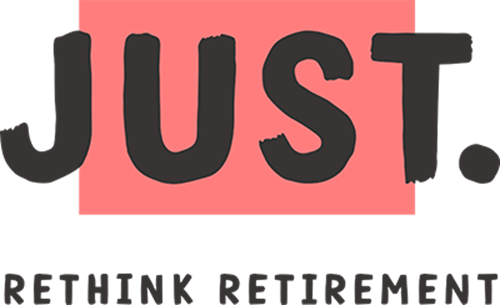An early retirement can be enticing, but it's only possible to leap into it with careful consideration. This article discusses the crucial factors that can shift the early retirement decision from dream to reality. We delve into the often-overlooked aspects and potential pitfalls of early retirement. By the end, you'll be equipped with the knowledge to decide if early retirement is right for you.
The allure of early retirement
Retiring early is appealing. Picture trading your daily work routine for relaxed mornings, social outings, and the freedom to travel or follow your long-held dreams. With all these benefits, who wouldn't be tempted to start enjoying their later life sooner than expected?
As appealing as it sounds, retiring early isn't a decision to take lightly. Leaving your steady job to retire early means you need careful financial planning, significant savings, and a clear idea of your future expenses.
Even with good savings and clear retirement goals, early retirement can be more challenging than expected if you fail to consider all possible impacts. Before leaving your job, it's important to have a complete picture of your life after retirement. This guide is here to help walk you through some key considerations.

1. It's essential to have more savings than you think
Remember that a substantial retirement savings account is crucial whether or not you're drawn to early retirement. But the earlier you retire, the longer your savings need to last. Studies frequently show that people tend to underestimate how long they'll live and how much money they'll need. Being aware of this can help you avoid the same mistake.
Additionally, you should consider economic changes and unexpected events when planning for early retirement. Inflation, rising living costs, and unexpected expenses can significantly impact your long-term savings. Home repairs, family emergencies, or global events such as a pandemic can also drastically change your financial situation.
That’s why figuring out how much you need to retire early and live comfortably can be tricky. Work with a financial adviser who can help you plan and calculate this sum based on your expected expenses, desired lifestyle, and potential investment returns.
You need a comprehensive retirement strategy, especially if you're retiring early. Start by carefully estimating your post-retirement expenses. Knowing how much you need can help guide your saving and investment decisions. While it's not 100% accurate, a good rule of thumb is to aim for a retirement income of about 80% of your pre-retirement salary. However, you may need more if you have debt or dependants.
Whether you've been saving aggressively or are just starting to think about it, remember more savings are always better. While the age-old question is often ‘How much is enough’, it's much better to have extra money than not enough. Your future retired self will thank you.

2. Ensuring financial stability for your dependants
Early retirement isn't just about ensuring that your family's financial stability is secure. It’s also about looking after yourself first so others don't have to, especially if you have dependants.
It's easy to overlook this in the excitement of leaving your 9 to 5. So, if you decide to retire early, ensure that you can afford to look after yourself and meet your own expenses.
Your children may still need to finish their education, your spouse may not be ready to retire, or an ageing parent depends on you financially – if an early retirement poses a financial risk to you, then it poses the same risk to your dependants. In this case, early retirement is not wise.
To secure your dependants' finances, consider setting up a safety net before you retire. This could include saving for your children's education, setting aside emergency funds, or securing a life annuity. These are important considerations for your savings plan.
An overlooked downside of early retirement is the possibility that you may need to depend on your children later in life if you haven’t saved enough. With people living longer, outliving savings is becoming more common, especially for living annuitants drawing income at unsustainable rates. Depending on your children could strain their finances and create unnecessary emotional stress or conflict.
In summary, protecting your own financial position in retirement is the best way to ensure that you are on the right track to protecting your dependants' financial stability, and alleviating the possibility that your dependants may need to provide for you.
Finding the right balance is key. This might involve working a bit longer or considering semi-retirement options, in which you still earn but in a reduced capacity.

3. Understanding the impact on your retirement savings when leaving the workforce early
One crucial aspect that often goes unnoticed when considering early retirement is its impact on your retirement savings. By retiring early, you're essentially truncating your active earning years. This can significantly decrease the overall funds that would have gone towards your retirement income if you had stayed in the workforce. In most instances, when you leave a job, your contributions to a retirement fund will stop.
Retiring early pauses one of your biggest allies: compound interest. Albert Einstein famously stated:
“Compound interest is the eighth wonder of the world. He who understands it, earns it. He who doesn't, pays it."
His sentiment is as applicable to your retirement benefit as it is to any other kind of interest-generating investment – every year you spend in the workforce, the savings you set aside for retirement enjoy the snowballing effect of compound interest. Essentially, your money generates more money over time.
You might wonder, "If I invest my savings after retiring, won't they still grow?" Yes, your savings can grow if invested wisely, but think about the reduced/ceased contributions. You might experience slower growth compared to when you were actively adding to your retirement savings from your income.
In essence, early retirement goes beyond hitting a savings target. It requires a solid plan that considers risks, fewer earning years, and the power of compounding. Educate yourself, plan meticulously, and seek advice from a financial adviser if unsure. Remember, a secure retirement, whether early or not, is a well-deserved reward for your years of effort.

4. Considering healthcare costs in retirement
A crucial factor to include in planning for early retirement is the cost of healthcare. While working, your employer might cover part or all of your healthcare expenses. But retiring early could mean losing this benefit, leaving you to navigate the costly private health insurance market or funding medical emergencies from discretionary savings.
The stakes get even higher when you consider that healthcare costs are not a steady ship – they rise as you age, often more so than inflation. On top of increasing with age, the costs could potentially skyrocket if you develop a chronic illness or disability. This variable and generally increasing expenditure means you should factor in a sizeable portion of your savings pool for healthcare costs when planning for early retirement.
You can explore supplementary policies such as long-term care insurance or gap cover to meet expenses not covered by regular health insurance.
Just as you would with your retirement savings, it is wise to engage in thorough research and planning regarding healthcare in retirement. A financial adviser can assist you with a calculated evaluation of options and potential costs, helping you make a decision that ensures financial security and good health as you enjoy retirement.

5. The psychological and social aspects of early retirement
Retirement involves more than just money; it has profound psychological and social effects. Our work often shapes our identity and gives us purpose. The routine, connections with colleagues, coffee breaks, and solving work problems are all part of our social fabric and self-image. So, retiring early can bring unexpected feelings.
Workplace social interactions often provide intellectual stimulation and emotional support for many people. Early retirement can result in a significant decrease in these interactions. As we get older, isolation can contribute to various physical and mental health problems, such as depression, heart disease, and cognitive decline.
So, how do you curb these potential downsides of early retirement? The key lies in proactive planning and intentional living. Ensure you have a robust social network outside of work, and maintain it after retirement. Volunteering, joining clubs or societies related to your hobbies, or maintaining a part-time job you’re passionate about are ways to stay involved with a broader community and keep the intellect buzzing.
It's crucial to redefine your sense of self and find purpose in activities you enjoy or causes you're passionate about. Create an identity beyond your job. Set goals outside of work, like learning an instrument, writing, gardening, or being the best grandparent. If you're open to exploring them, there are countless ways to stay fulfilled and productive in your retirement years.
Remember, the goal of retirement, early or otherwise, is to enjoy life satisfyingly. Embrace this new chapter with enthusiasm, curiosity, and a positive outlook.

6. Just Retirement Insights
Just Retirement Insights is a tracking study powered by Just SA that aims to better understand the South African retirement market and retirement needs.
Now in its fifth year, the findings from Just Retirement Insights suggest that retirees’ attitudes about their skills and abilities to secure a sustainable retirement do not always align with reality.
Three predominant retirement themes emerged from Just Retirement Insights 2024:
- Self-confidence
- Retirement confidence
- Contextual confidence
The findings also highlight the importance of self-awareness and planning in achieving a successful retirement, whether early or not. As you explore the possibilities and challenges of early retirement, ensure you understand the realities of your financial and personal readiness.
We highly recommend working with your adviser to integrate these insights into your early retirement considerations. This will help you better navigate the complexities of retirement and ensure a more secure and fulfilling transition into this new chapter of life.

7. Is an early retirement wise?
Early retirement seems enticing to many, but its path has multiple variables and potential challenges. One critical takeaway is that earlier retirement often necessitates substantially more savings to ensure a comfortable lifestyle for a potentially extended period. Workforce departure timing crucially impacts retirement savings, considering the lost advantage of compounding. Moreover, your choice of retirement timeline must support any financial dependants' needs.
Healthcare costs are often underestimated, escalate with age, and can become a significant burden, especially in the absence of employer-provided benefits. To add another layer of complexity, leaving work earlier than the norm can invariably affects one's identity, mental well-being and social dynamics, necessitating thoughtful consideration and planning.
The key, ultimately, is to approach early retirement as a personal decision with deeply individual ramifications rather than an appealing concept in the abstract. Your unique circumstances – from your financial health, family responsibilities and personal aspirations to your temperament and social preferences – should be at the core of your decision-making process.
Therefore, engage with all these facets carefully. Ponder. Revisit. Most importantly, do not hesitate to seek the counsel of a financial adviser who can help you make a well-rounded decision.
After all, early retirement isn't just about stepping away from work. The goal isn't only to retire early. It's to retire right.
Contents

